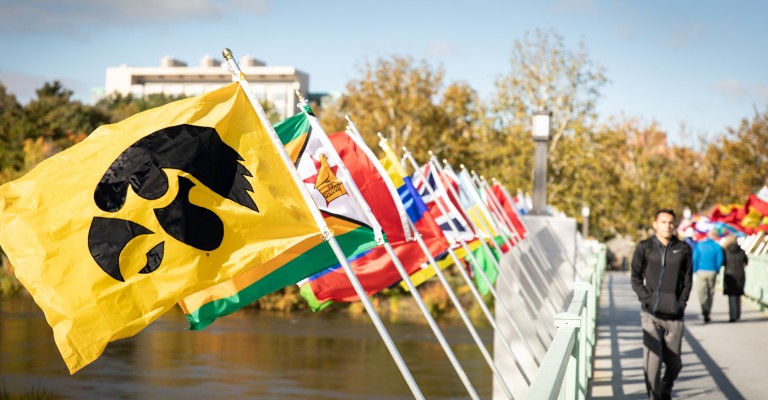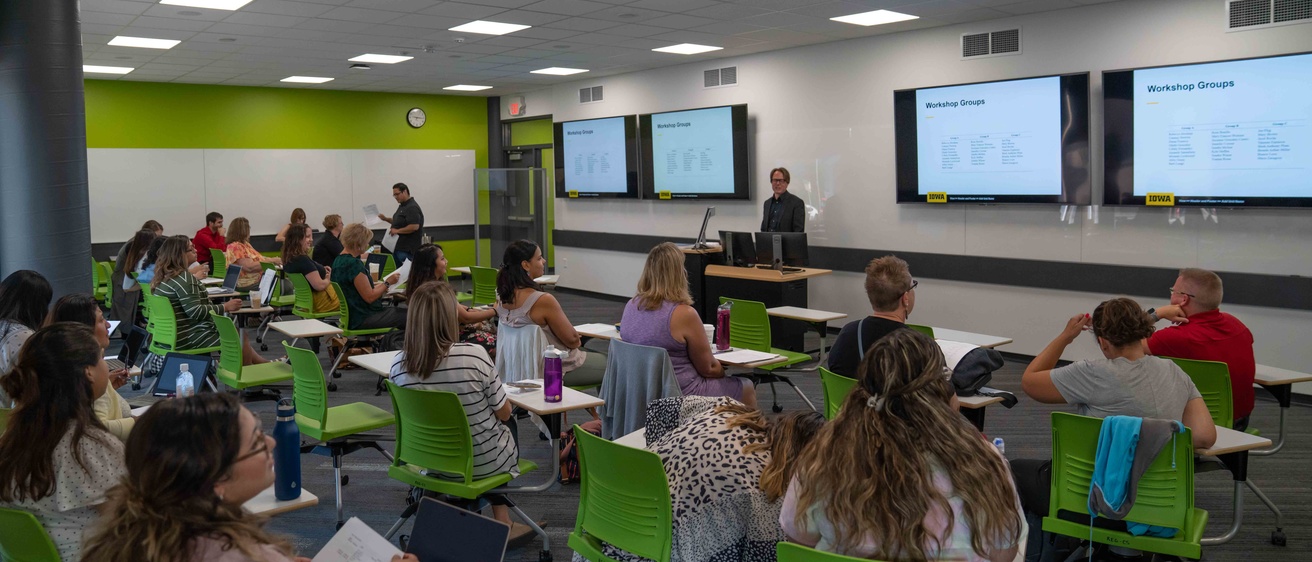Program Overview
In this program, you are part of an engaging and thoughtful academic community, with small classes that encourage meaningful dialogue and faculty-student interactions.
This flexible, interdisciplinary program will prepare you with the knowledge and research skills necessary for faculty positions, independent research, program administration, and varied leadership positions.
Your program advisor will help guide you through the requirements for degree completion.
As a student in the Language, Literacy, and Social Studies Education program, you choose a disciplinary foundation in Literacy Education, Multilingual Education, or Social Studies Education. You will also choose from a variety of courses outside of your disciplinary foundation to fit your academic and career goals.
Literacy Education
Literacy Education coursework provides both a broad background in relevant theoretical and research literature and opportunities to conduct original studies that explore the nature of literacy practices both in and out of school. Students share a commitment to explore and investigate contemporary issues in literacy practices. Literacy education has a rich legacy of placing graduates in careers as tenure track professors, as well as curriculum leaders and administrators of literacy programs.
Multilingual Education
Faculty members and students in Multilingual Education specialize in Foreign Language Education, TESOL, Educational Linguistics, Language Assessment, Second Language Literacy, Sociolinguistics, Language Policy and Planning, and Second Language Acquisition. Students and faculty conduct research in different educational contexts, including Foreign/World language classrooms, English as a Second Language Classrooms, Bilingual Education classrooms, as well as families and communities.
Social Studies Education
Faculty members and students in Social Studies Education examine the role of the social and behavioral sciences and history in a diverse society. The Social Studies program emphasizes interdisciplinary explorations of the social studies. Course offerings engage students in global perspectives, multicultural education, education for democratic citizenship, and social justice issues.
Funding Opportunities
Language, Literacy, and Social Studies Education students have access to a variety of internal and external funding opportunities.
Nearly all full-time students are placed in graduate assistantships. Additionally, there are multiple internal and external fellowships and grants to supplement your education and support your research interests.

International Students
Students from all around the world come to the University of Iowa for the Language, Literacy, and Social Studies Education program. More than half of our students are international. Students come from a variety of countries including (among others):
- China
- Saint Lucia
- Brazil
- South Korea
- Spain
- Germany
- Indonesia
- Morocco
- Turkey
- Japan
Faculty and Research
As part of this multi-disciplinary program, you will work with experienced faculty across the College of Education.
Areas of expertise include:
- Applied and Educational Linguistics
- Literacy
- Social Studies Education
- Foreign and World Language Education
- English Education
- Cultural Studies
- History Education
- ESL/Bilingual Education
- Children and Adolescent Literature
- Global Education
Admissions and Application
Application deadlines:
- January 5 (Fall semester)
- October 1 (Spring semester)
Admission Requirements
- A bachelor’s degree from a Regionally Accredited American College or University, or an equivalent degree from another country as determined by the Office of Admissions
- Master’s degree or significant graduate coursework
- Undergraduate grade-point average (GPA) of 3.00 or better on a four-point scale
- The Graduate Record Exam (GRE) General test – verbal and quantitative - is not required.
- Test of English as a Foreign Language (TOEFL) for international applicants who do not meet the waiver requirements – minimum score of 90 (internet-based) with a speaking score of 24 and a writing score of 25 (see the University of Iowa’s English proficiency requirements)
- Recommended: Two years of experience teaching or tutoring within or outside of the United States
Required Supplemental Materials
- Official transcripts from all colleges and universities
- Statement of purpose explaining related experiences, reasons for pursuing graduate study, and future goals
- A sample of academic writing
- Curriculum Vitae
- Three letters of recommendation*
* You will be asked to give the contact information of your recommenders, including their email, on your Admissions Profile. The recommender will then get an email with instructions on how to upload the recommendation letter and/or form.
Apply Now
Please review the required supplemental documents above before starting the general graduate application. To begin the application process, set up an account with an existing email address and password
News

Msuya selected for 'Dare to Discover' campaign

In the news: Literacy, Culture, and Language PhD student featured by Grad College
Five UI College of Education students selected for OVPR’s 'Dare to Discover' campaign
Contact Us
David Cassels Johnson, Program Coordinator
N244 Lindquist Center
319-335-6175
david-c-johnson@uiowa.edu
Application questions?
Contact Anne Sparks, 319-335-2146 or
anne-sparks@uiowa.edu.
We look forward to receiving your application!
